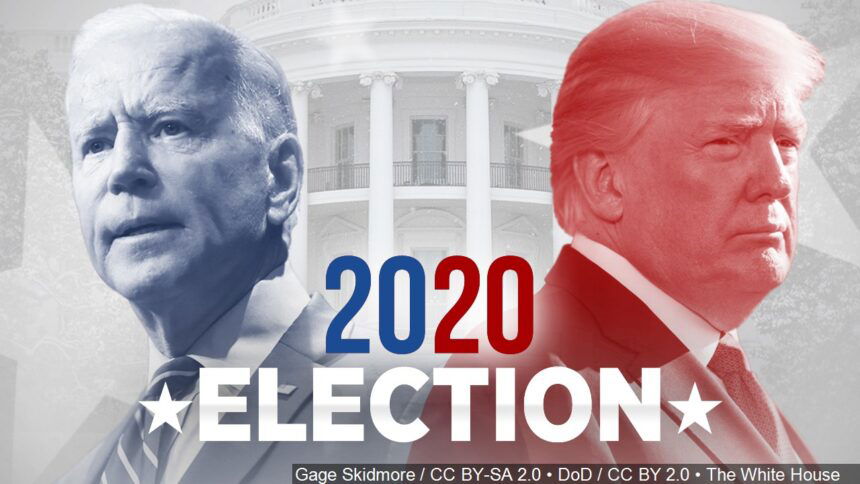Trump, Biden fight hard for Arizona’s 11 electoral votes

PHOENIX (AP) — Arizona’s electoral college votes have been a safe bet for Republicans for most presidential elections over the past seven decades. But not in 2020.
As a bona fide swing state for the first time in memory, Arizona has been lavished with attention by President Donald Trump and his Democratic rival, former Vice President Joe Biden.
And it’s not just the presidential race. Arizona is in play up and down the ballot, where Democrats have a realistic shot at winning everything from a U.S. Senate race to control of the state Legislature.
Some polling places in metro Phoenix had short lines of voters before they opened at 6 a.m.
Statewide turnout was already high, with nearly 62% of voters already casting their ballots either by mail or in-person as of Monday morning, according to a tally from the Arizona Secretary of State’s office.
Democrats pin their hopes on Arizona’s changing demographics and the swing voters who split their tickets two years ago to elect a Republican governor and a Democrat to the U.S. Senate.
Trump and his allies, meanwhile, made an aggressive push to hold onto Arizona, which the president won by 3.5 percentage points in 2016. Trump visited Arizona regularly during his presidency and made seven trips to the state in 2020.
And during the campaign’s closing weeks, Trump’s children, Vice President Mike Pence and other campaign surrogates also visited the state repeatedly.
Trump’s campaign focused in particular on Latinos and members of The Church of Jesus Christ of Latter-day Saints.
While members of the church overwhelmingly vote Republican, Trump’s brash style and his comments about women contrast with the church’s teachings of modesty and self-restraint. His isolationist foreign policy goes against the faith’s longtime drive with missionaries to recruit members around the world.
Biden made just one stop in Arizona during a campaign shortened by the pandemic. His vice presidential running mate, California Sen. Kamala Harris, visited twice — once with Biden, and once on her own last week.
The fortunes of Arizona Democrats have risen thanks to the state’s growing Latino population, an influx of new voters and unease with Trump and the GOP among suburban women.
Bill Clinton was the most recent Democratic presidential candidate to take Arizona, winning with 46% of the vote in 1996. His victory was helped by Ross Perot’s strong third-party bid.
Besides Clinton, the last time Arizona selected a Democrat for president was in 1948 with Harry Truman.
Arizona’s voters also will also decide a U.S. Senate race that will be crucial in determining which party controls the upper chamber of Congress.
Republican Sen. Martha McSally, who was appointed to the seat formerly held by the late GOP Sen. John McCain, faces a strong challenge from Democrat Mark Kelly, a retired astronaut.
The makeup of the state’s U.S. House delegation is also on the line, with all nine incumbents facing challenges. Republican Rep. David Schweikert, weighed down by an ethics probe, is in a close race against Democrat Hiral Tipirneni, a doctor, in the district that has always strongly favored the GOP. Republicans hope to topple Democratic Rep. Tom O’Halleran in the 1st District.
Democrats also have a chance of winning a majority on the Arizona Corporation Commission, which regulates electric utilities, and in the state Legislature. Democrats need a net gain of two seats in the House and three in the Senate to end decades of Republican control of the Legislature.